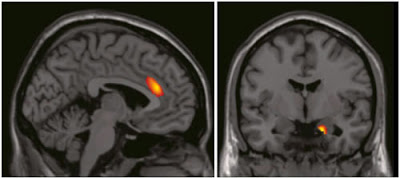For many years General Medical Council has discriminated against ethnic minorities.
Investigation procedures dictate that a complaint made against locum doctor (mostly ethnic minorities doctors) or doctor in private practice is immediately investigated and treated as serious one unlike complaints made against doctors working for state National Health Service. This has resulted in mostly ethnic minorities (this includes white Europeans) being subject of punishment as in scapegoating and doctors in private practice finding themselves persecuted for years under Labour government.
The result could be that some of the best doctors would be removed from circulation if they upset
crowd. Complaints sent to The General Medical Council by
Medical Directors have been given a special status despite the fact that we know some of those guys are really corrupt.
In their naivety ethnic minority doctors went to Equality and Human Rights Commission only to find the door firmly slammed in their faces. Equality and Human Rights Commission told doctors they do not take up individual cases but only look at the systemic abuse. When evidence of systemic abuse was sent to Equality and Human Rights Commission of racial discrimination as discovered in various policies, they would not say for a year if they were investigating or not. Instead a nebulous word enquiries was used in replies to doctors. In fact, they did nothing that would result in action to stamp out discrimination. They were asked many, many times to answer in a straightforward way if they were investigating or not the complaints made to them, but they carried on in the same way. This meant that doctor would run out of time to make a complaint to the courts under Human Rights Act 1998 if she/he waited for Equality and Human Rights Commission to help them first.
When the new government reduced funding by 60% to Equality and Human Rights Commission there were voices raised by some of their staff that the government was trying to shut them down. Why did they not think they were fined? Alternatively, having assisted in the destruction of so many livelihoods why did they not consider something called karma affecting them now?
Finally, doctors realized that they were stitched up thoroughly and reported both Equality and Human Rights Commission as well as The General Medical Council to European Commission for breaches of Directive 2000/43.
Council Directive 2000/43/EC
of 29 June 2000
implementing the principle of equal treatment between persons irrespective of racial or ethnic origin
THE COUNCIL OF THE EUROPEAN UNION,
Having regard to the Treaty establishing the European Community and in particular Article 13 thereof,
Having regard to the proposal from the Commission(1),
Having regard to the opinion of the European Parliament(2),
Having regard to the opinion of the Economic and Social Committee(3),
Having regard to the opinion of the Committee of the Regions(4),
Whereas:
(1) The Treaty on European Union marks a new stage in the process of creating an ever closer union among the peoples of Europe.
(2) In accordance with Article 6 of the Treaty on European Union, the European Union is founded on the principles of liberty, democracy, respect for human rights and fundamental freedoms, and the rule of law, principles which are common to the Member States, and should respect fundamental rights as guaranteed by the European Convention for the protection of Human Rights and Fundamental Freedoms and as they result from the constitutional traditions common to the Member States, as general principles of Community Law.
(3) The right to equality before the law and protection against discrimination for all persons constitutes a universal right recognised by the Universal Declaration of Human Rights, the United Nations Convention on the Elimination of all forms of Discrimination Against Women, the International Convention on the Elimination of all forms of Racial Discrimination and the United Nations Covenants on Civil and Political Rights and on Economic, Social and Cultural Rights and by the European Convention for the Protection of Human Rights and Fundamental Freedoms, to which all Member States are signatories.
(4) It is important to respect such fundamental rights and freedoms, including the right to freedom of association. It is also important, in the context of the access to and provision of goods and services, to respect the protection of private and family life and transactions carried out in this context.
(5) The European Parliament has adopted a number of Resolutions on the fight against racism in the European Union.
(6) The European Union rejects theories which attempt to determine the existence of separate human races. The use of the term "racial origin" in this Directive does not imply an acceptance of such theories.
(7) The European Council in Tampere, on 15 and 16 October 1999, invited the Commission to come forward as soon as possible with proposals implementing Article 13 of the EC Treaty as regards the fight against racism and xenophobia.
(8) The Employment Guidelines 2000 agreed by the European Council in Helsinki, on 10 and 11 December 1999, stress the need to foster conditions for a socially inclusive labour market by formulating a coherent set of policies aimed at combating discrimination against groups such as ethnic minorities.
(9) Discrimination based on racial or ethnic origin may undermine the achievement of the objectives of the EC Treaty, in particular the attainment of a high level of employment and of social protection, the raising of the standard of living and quality of life, economic and social cohesion and solidarity. It may also undermine the objective of developing the European Union as an area of freedom, security and justice.
(10) The Commission presented a communication on racism, xenophobia and anti-Semitism in December 1995.
(11) The Council adopted on 15 July 1996 Joint Action (96/443/JHA) concerning action to combat racism and xenophobia(5) under which the Member States undertake to ensure effective judicial cooperation in respect of offences based on racist or xenophobic behaviour.
(12) To ensure the development of democratic and tolerant societies which allow the participation of all persons irrespective of racial or ethnic origin, specific action in the field of discrimination based on racial or ethnic origin should go beyond access to employed and self-employed activities and cover areas such as education, social protection including social security and healthcare, social advantages and access to and supply of goods and services.
(13) To this end, any direct or indirect discrimination based on racial or ethnic origin as regards the areas covered by this Directive should be prohibited throughout the Community. This prohibition of discrimination should also apply to nationals of third countries, but does not cover differences of treatment based on nationality and is without prejudice to provisions governing the entry and residence of third-country nationals and their access to employment and to occupation.
(14) In implementing the principle of equal treatment irrespective of racial or ethnic origin, the Community should, in accordance with Article 3(2) of the EC Treaty, aim to eliminate inequalities, and to promote equality between men and women, especially since women are often the victims of multiple discrimination.
(15) The appreciation of the facts from which it may be inferred that there has been direct or indirect discrimination is a matter for national judicial or other competent bodies, in accordance with rules of national law or practice. Such rules may provide in particular for indirect discrimination to be established by any means including on the basis of statistical evidence.
(16) It is important to protect all natural persons against discrimination on grounds of racial or ethnic origin. Member States should also provide, where appropriate and in accordance with their national traditions and practice, protection for legal persons where they suffer discrimination on grounds of the racial or ethnic origin of their members.
(17) The prohibition of discrimination should be without prejudice to the maintenance or adoption of measures intended to prevent or compensate for disadvantages suffered by a group of persons of a particular racial or ethnic origin, and such measures may permit organisations of persons of a particular racial or ethnic origin where their main object is the promotion of the special needs of those persons.
(18) In very limited circumstances, a difference of treatment may be justified where a characteristic related to racial or ethnic origin constitutes a genuine and determining occupational requirement, when the objective is legitimate and the requirement is proportionate. Such circumstances should be included in the information provided by the Member States to the Commission.
(19) Persons who have been subject to discrimination based on racial and ethnic origin should have adequate means of legal protection. To provide a more effective level of protection, associations or legal entities should also be empowered to engage, as the Member States so determine, either on behalf or in support of any victim, in proceedings, without prejudice to national rules of procedure concerning representation and defence before the courts.
(20) The effective implementation of the principle of equality requires adequate judicial protection against victimisation.
(21) The rules on the burden of proof must be adapted when there is a prima facie case of discrimination and, for the principle of equal treatment to be applied effectively, the burden of proof must shift back to the respondent when evidence of such discrimination is brought.
(22) Member States need not apply the rules on the burden of proof to proceedings in which it is for the court or other competent body to investigate the facts of the case. The procedures thus referred to are those in which the plaintiff is not required to prove the facts, which it is for the court or competent body to investigate.
(23) Member States should promote dialogue between the social partners and with non-governmental organisations to address different forms of discrimination and to combat them.
(24) Protection against discrimination based on racial or ethnic origin would itself be strengthened by the existence of a body or bodies in each Member State, with competence to analyse the problems involved, to study possible solutions and to provide concrete assistance for the victims.
(25) This Directive lays down minimum requirements, thus giving the Member States the option of introducing or maintaining more favourable provisions. The implementation of this Directive should not serve to justify any regression in relation to the situation which already prevails in each Member State.
(26) Member States should provide for effective, proportionate and dissuasive sanctions in case of breaches of the obligations under this Directive.
(27) The Member States may entrust management and labour, at their joint request, with the implementation of this Directive as regards provisions falling within the scope of collective agreements, provided that the Member States take all the necessary steps to ensure that they can at all times guarantee the results imposed by this Directive.
(28) In accordance with the principles of subsidiarity and proportionality as set out in Article 5 of the EC Treaty, the objective of this Directive, namely ensuring a common high level of protection against discrimination in all the Member States, cannot be sufficiently achieved by the Member States and can therefore, by reason of the scale and impact of the proposed action, be better achieved by the Community. This Directive does not go beyond what is necessary in order to achieve those objectives,
HAS ADOPTED THIS DIRECTIVE:
CHAPTER I
GENERAL PROVISIONS
Article 1
Purpose
The purpose of this Directive is to lay down a framework for combating discrimination on the grounds of racial or ethnic origin, with a view to putting into effect in the Member States the principle of equal treatment.
Article 2
Concept of discrimination
1. For the purposes of this Directive, the principle of equal treatment shall mean that there shall be no direct or indirect discrimination based on racial or ethnic origin.
2. For the purposes of paragraph 1:
(a) direct discrimination shall be taken to occur where one person is treated less favourably than another is, has been or would be treated in a comparable situation on grounds of racial or ethnic origin;
(b) indirect discrimination shall be taken to occur where an apparently neutral provision, criterion or practice would put persons of a racial or ethnic origin at a particular disadvantage compared with other persons, unless that provision, criterion or practice is objectively justified by a legitimate aim and the means of achieving that aim are appropriate and necessary.
3. Harassment shall be deemed to be discrimination within the meaning of paragraph 1, when an unwanted conduct related to racial or ethnic origin takes place with the purpose or effect of violating the dignity of a person and of creating an intimidating, hostile, degrading, humiliating or offensive environment. In this context, the concept of harassment may be defined in accordance with the national laws and practice of the Member States.
4. An instruction to discriminate against persons on grounds of racial or ethnic origin shall be deemed to be discrimination within the meaning of paragraph 1.
Article 3
Scope
1. Within the limits of the powers conferred upon the Community, this Directive shall apply to all persons, as regards both the public and private sectors, including public bodies, in relation to:
(a) conditions for access to employment, to self-employment and to occupation, including selection criteria and recruitment conditions, whatever the branch of activity and at all levels of the professional hierarchy, including promotion;
(b) access to all types and to all levels of vocational guidance, vocational training, advanced vocational training and retraining, including practical work experience;
(c) employment and working conditions, including dismissals and pay;
(d) membership of and involvement in an organisation of workers or employers, or any organisation whose members carry on a particular profession, including the benefits provided for by such organisations;
(e) social protection, including social security and healthcare;
(f) social advantages;
(g) education;
(h) access to and supply of goods and services which are available to the public, including housing.
2. This Directive does not cover difference of treatment based on nationality and is without prejudice to provisions and conditions relating to the entry into and residence of third-country nationals and stateless persons on the territory of Member States, and to any treatment which arises from the legal status of the third-country nationals and stateless persons concerned.
Article 4
Genuine and determining occupational requirements
Notwithstanding Article 2(1) and (2), Member States may provide that a difference of treatment which is based on a characteristic related to racial or ethnic origin shall not constitute discrimination where, by reason of the nature of the particular occupational activities concerned or of the context in which they are carried out, such a characteristic constitutes a genuine and determining occupational requirement, provided that the objective is legitimate and the requirement is proportionate.
Article 5
Positive action
With a view to ensuring full equality in practice, the principle of equal treatment shall not prevent any Member State from maintaining or adopting specific measures to prevent or compensate for disadvantages linked to racial or ethnic origin.
Article 6
Minimum requirements
1. Member States may introduce or maintain provisions which are more favourable to the protection of the principle of equal treatment than those laid down in this Directive.
2. The implementation of this Directive shall under no circumstances constitute grounds for a reduction in the level of protection against discrimination already afforded by Member States in the fields covered by this Directive.
CHAPTER II
REMEDIES AND ENFORCEMENT
Article 7
Defence of rights
1. Member States shall ensure that judicial and/or administrative procedures, including where they deem it appropriate conciliation procedures, for the enforcement of obligations under this Directive are available to all persons who consider themselves wronged by failure to apply the principle of equal treatment to them, even after the relationship in which the discrimination is alleged to have occurred has ended.
2. Member States shall ensure that associations, organisations or other legal entities, which have, in accordance with the criteria laid down by their national law, a legitimate interest in ensuring that the provisions of this Directive are complied with, may engage, either on behalf or in support of the complainant, with his or her approval, in any judicial and/or administrative procedure provided for the enforcement of obligations under this Directive.
3. Paragraphs 1 and 2 are without prejudice to national rules relating to time limits for bringing actions as regards the principle of equality of treatment.
Article 8
Burden of proof
1. Member States shall take such measures as are necessary, in accordance with their national judicial systems, to ensure that, when persons who consider themselves wronged because the principle of equal treatment has not been applied to them establish, before a court or other competent authority, facts from which it may be presumed that there has been direct or indirect discrimination, it shall be for the respondent to prove that there has been no breach of the principle of equal treatment.
2. Paragraph 1 shall not prevent Member States from introducing rules of evidence which are more favourable to plaintiffs.
3. Paragraph 1 shall not apply to criminal procedures.
4. Paragraphs 1, 2 and 3 shall also apply to any proceedings brought in accordance with Article 7(2).
5. Member States need not apply paragraph 1 to proceedings in which it is for the court or competent body to investigate the facts of the case.
Article 9
Victimisation
Member States shall introduce into their national legal systems such measures as are necessary to protect individuals from any adverse treatment or adverse consequence as a reaction to a complaint or to proceedings aimed at enforcing compliance with the principle of equal treatment.
Article 10
Dissemination of information
Member States shall take care that the provisions adopted pursuant to this Directive, together with the relevant provisions already in force, are brought to the attention of the persons concerned by all appropriate means throughout their territory.
Article 11
Social dialogue
1. Member States shall, in accordance with national traditions and practice, take adequate measures to promote the social dialogue between the two sides of industry with a view to fostering equal treatment, including through the monitoring of workplace practices, collective agreements, codes of conduct, research or exchange of experiences and good practices.
2. Where consistent with national traditions and practice, Member States shall encourage the two sides of the industry without prejudice to their autonomy to conclude, at the appropriate level, agreements laying down anti-discrimination rules in the fields referred to in Article 3 which fall within the scope of collective bargaining. These agreements shall respect the minimum requirements laid down by this Directive and the relevant national implementing measures.
Article 12
Dialogue with non-governmental organisations
Member States shall encourage dialogue with appropriate non-governmental organisations which have, in accordance with their national law and practice, a legitimate interest in contributing to the fight against discrimination on grounds of racial and ethnic origin with a view to promoting the principle of equal treatment.
CHAPTER III
BODIES FOR THE PROMOTION OF EQUAL TREATMENT
Article 13
1. Member States shall designate a body or bodies for the promotion of equal treatment of all persons without discrimination on the grounds of racial or ethnic origin. These bodies may form part of agencies charged at national level with the defence of human rights or the safeguard of individuals' rights.
2. Member States shall ensure that the competences of these bodies include:
- without prejudice to the right of victims and of associations, organisations or other legal entities referred to in Article 7(2), providing independent assistance to victims of discrimination in pursuing their complaints about discrimination,
- conducting independent surveys concerning discrimination,
- publishing independent reports and making recommendations on any issue relating to such discrimination.
CHAPTER IV
FINAL PROVISIONS
Article 14
Compliance
Member States shall take the necessary measures to ensure that:
(a) any laws, regulations and administrative provisions contrary to the principle of equal treatment are abolished;
(b) any provisions contrary to the principle of equal treatment which are included in individual or collective contracts or agreements, internal rules of undertakings, rules governing profit-making or non-profit-making associations, and rules governing the independent professions and workers' and employers' organisations, are or may be declared, null and void or are amended.
Article 15
Sanctions
Member States shall lay down the rules on sanctions applicable to infringements of the national provisions adopted pursuant to this Directive and shall take all measures necessary to ensure that they are applied. The sanctions, which may comprise the payment of compensation to the victim, must be effective, proportionate and dissuasive. The Member States shall notify those provisions to the Commission by 19 July 2003 at the latest and shall notify it without delay of any subsequent amendment affecting them.
Article 16
Implementation
Member States shall adopt the laws, regulations and administrative provisions necessary to comply with this Directive by 19 July 2003 or may entrust management and labour, at their joint request, with the implementation of this Directive as regards provisions falling within the scope of collective agreements. In such cases, Member States shall ensure that by 19 July 2003, management and labour introduce the necessary measures by agreement, Member States being required to take any necessary measures to enable them at any time to be in a position to guarantee the results imposed by this Directive. They shall forthwith inform the Commission thereof.
When Member States adopt these measures, they shall contain a reference to this Directive or be accompanied by such a reference on the occasion of their official publication. The methods of making such a reference shall be laid down by the Member States.
Article 17
Report
1. Member States shall communicate to the Commission by 19 July 2005, and every five years thereafter, all the information necessary for the Commission to draw up a report to the European Parliament and the Council on the application of this Directive.
2. The Commission's report shall take into account, as appropriate, the views of the European Monitoring Centre on Racism and Xenophobia, as well as the viewpoints of the social partners and relevant non-governmental organisations. In accordance with the principle of gender mainstreaming, this report shall, inter alia, provide an assessment of the impact of the measures taken on women and men. In the light of the information received, this report shall include, if necessary, proposals to revise and update this Directive.
Article 18
Entry into force
This Directive shall enter into force on the day of its publication in the Official Journal of the European Communities.
Article 19
Addressees
This Directive is addressed to the Member States.
Done at Luxembourg, 29 June 2000.
For the Council
The President
M. Arcanjo
(1) Not yet published in the Official Journal.
(2) Opinion delivered on 18.5.2000 (not yet published in the Official Journal).
(3) Opinion delivered on 12.4.2000 (not yet published in the Official Journal).
(4) Opinion delivered on 31.5.2000 (not yet published in the Official Journal).
(5) OJ L 185, 24.7.1996, p. 5.
Complaints made against locum doctors are not more difficult to investigate than complaints against suspended NHS doctors. The same applies to private practitioners.
Basic human decency would be to complain to the doctor first so she/he can answer the complaints promptly. Emails travel fast and can reach doctors anywhere in the world. Doctors check their emails even on holidays. Instead of expecting reasonable behavior from complainants, GMC and EHRC allowed scapegoating and this led to many deaths of both doctors and patients. NHS Medical Directors protected the NHS doctors who really made bad mistakes in order not to be implicated themselves as poor managers. As blame could have easily fallen on them for neglect of their duties easy targets were identified and used to direct the attention of medical regulator and discredit scapegoated person, usually a locum of ethnic minority origin.
Labour government did not like locums because they had to pay not just locum doctors but also the agencies who supplied them and this meant more money had to be found (at least 15% more). When money comes from taxes, it becomes a bigger problem as raising them makes government unpopular. Therefore, Chief Medical Officer Donaldson decided to make life difficult in order to force locums into permanent NHS positions or out of medical profession. To meet the shortage of slaves, immigration rules for doctors were relaxed and more doctors came from other continents and these doctors took permanent positions in NHS. At the same time doctors jobs became mostly clinical work with less research and doctor's leadership role was extinguished. The political jargon for this was: "New ways of working".
If doctors were caught not doing as ordered by less qualified/competent NHS staff they became the subject of complaints to medical regulator and eventually the victims of "cut and paste" judgements by GMC Fitness to Practice Committee who found inevitably evidence of poor team working.
The next step would be for doctor to show insight (agree to injustice being justice) and agree to pseudo psychiatric monitoring of his team working methods and if not in agreement with medical regulator the next step would be for him to be struck off medical register. It is really , very simple.
 Relatives of patients unhappy with treatment their loved ones received had a meeting with some of hospital staff in Bury, north Manchester, UK. You can watch on BBC TV report if you click on image on the left. The report starts at 03.40 minutes into the program.
Relatives of patients unhappy with treatment their loved ones received had a meeting with some of hospital staff in Bury, north Manchester, UK. You can watch on BBC TV report if you click on image on the left. The report starts at 03.40 minutes into the program.








